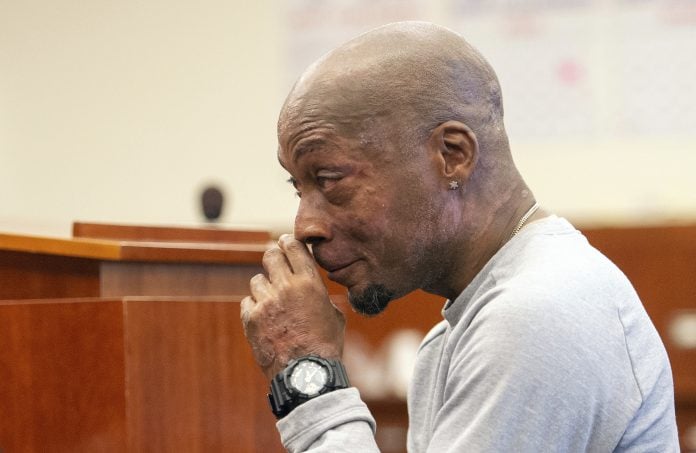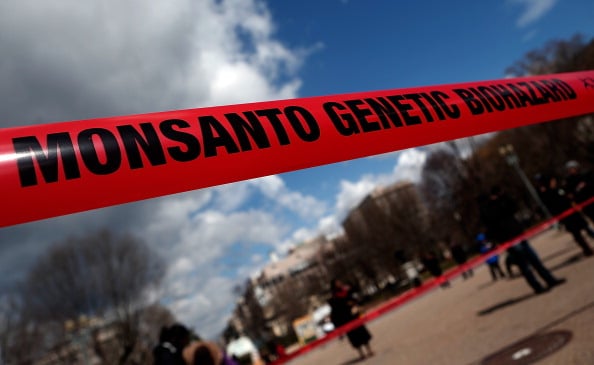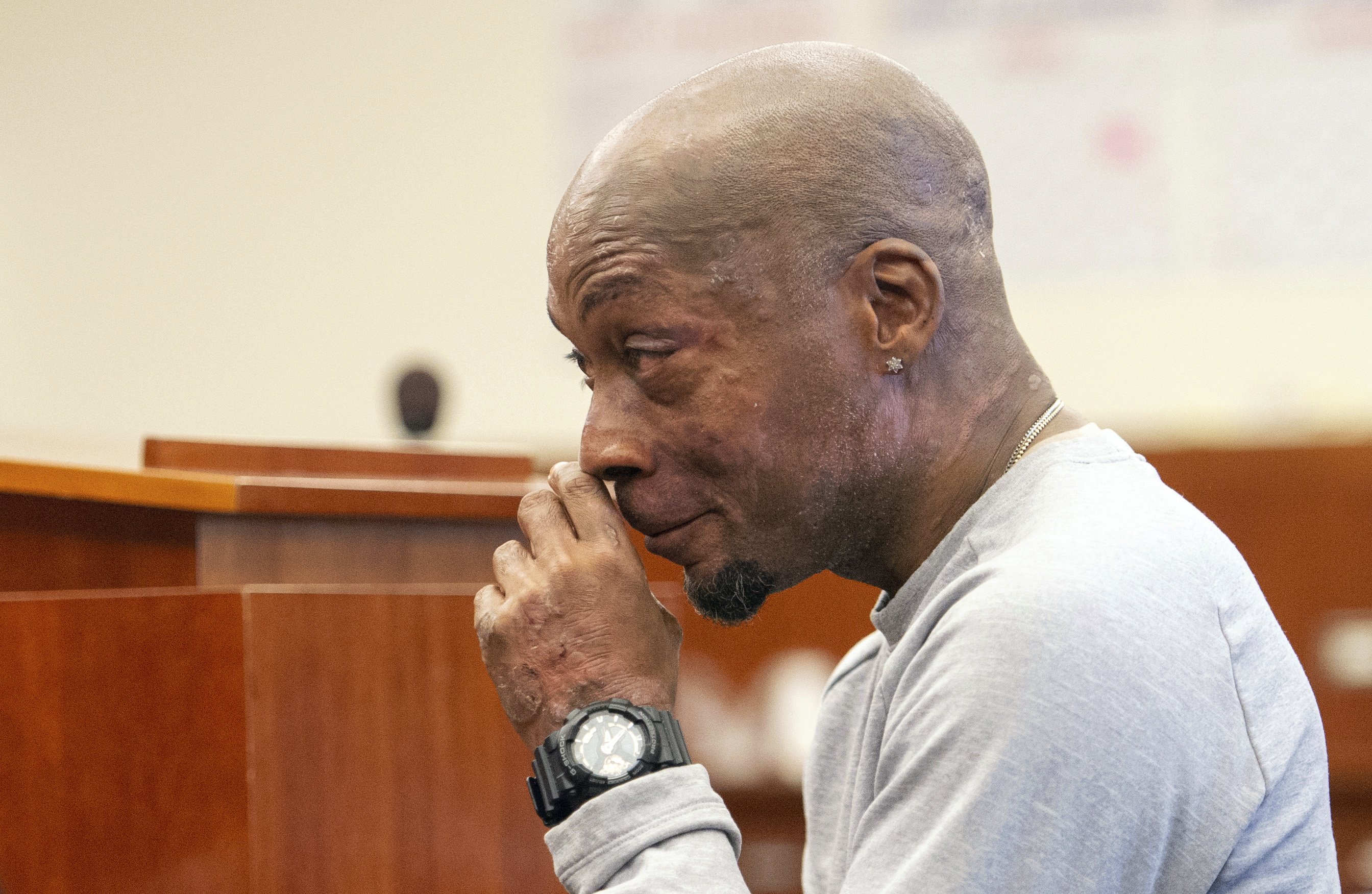[ad_1]

A terminally ill Northern California former school groundskeeper, who won a major civil suit against the biotech company, Monsanto has decided to accept a $78 million ruling after a judge recently slashed the jury’s original $289 million award.
Representatives for Dewayne “Lee” Johnson, who was a pest-control manager for the Benicia Unified Schools, said Wednesday that he is accepting the money a week after the judge’s ruling to “hopefully achieve a final resolution within his lifetime.”
Currently, Johnson “is not in the best of health, let’s put it that way,” his Los Angeles-based attorney Pedram Esfandiary, said Thursday.
“Quite frankly, he’s dying and he wants to make sure his loved ones will be taken care of. I think $78 million isn’t a small fee,” said Esfandiary, adding that Johnson also wants to use the money to undergo more extensive treatment and “spend his last remaining time as comfortable as possible.”
Robin McCall, a spokesperson for the law firm representing Johnson said Thursday that Monsanto and its parent company, the pharmaceutical giant, Bayer, will likely dispute the amount and take Johnson’s case to the state court of appeals.
Meanwhile, Johnson has declined numerous interview requests because of his health, his representatives said. His decision to take less money is the latest chapter in the landmark case in which he sued Monsanto, claiming that their popular weed killer, Roundup caused his cancer. Bayer disputes any link between Roundup’s chemicals, including glyphosate, a widely used herbicide, and Johnson’s declining health.
The 46-year-old Johnson, a married father of three, had until December to decide if he would accept the money. He worked for the Benicia schools from 2012 to 2016 and sued Monsanto after he developed a skin rash in 2014 and was diagnosed with non-Hodgkin’s lymphoma the following year. He sued the company in 2016.
During a four-week trial this summer, Johnson testified that the herbicide was indeed the cause for his cancer as he was exposed to sprays despite wearing protective clothing. Johnson testified that he had even been drenched with chemicals at least twice due to malfunctioning equipment. The lesions and welts across his face, arms, and legs came shortly after.
One of the doctors who testified said Johnson undergoes chemo treatments that often leave him weak and determined that his terminal illness has left him with just two years to live.
“More severe lesions have returned, it’s hard for him to shake hands, embrace people,” his attorney said. “This is a malignant, aggressive form of cancer.”
How it came to be
In August, a San Francisco jury agreed with Johnson that Monsanto was responsible and unanimously awarded him $250 million in punitive damages and $39 million for compensatory damages. Jurors said Monsanto “acted with malice or oppression” for not disclosing the product’s dangers and not returning his phone calls after he became ill.
After the verdict, Johnson told reporters that his lawsuit wasn’t about the money, but to warn others about the potential effects of using such chemicals.

“The verdict really meant to me – that this thing was not done in vain,” Johnson told CBS News. “I remember standing there saying to myself, if I lose this case, this company is gonna get away and… they’ll be able to say, ‘See? Told you our stuff didn’t do that.’”
READ MORE: CNN’s Don Lemon not backing down from his statement about ‘white men’
Despite jurors objections, last week, San Francisco Judge Suzanne Bolanos cut Johnson’s award by more than $200 million to $78 million. While the judge left the jury’s $39 million compensatory awards, she severely reduced the punitive award from $250 million to match the compensatory amount to concur with state and federal laws.
At the time, Bayer spokesman Christoper Loder said the judge’s decision to cut the amount was “a step in the right direction.” Loder added that the evidence presented at trial did not support the jury’s verdict as the company still planned to appeal the case.
And it has not wavered its stance.
“As we move to the appellate stage of this case, one thing is clear: despite an unusual high-profile media and advertising campaign aimed at influencing the Court’s decision, neither the facts nor the law changed in the two weeks between the tentative and final rulings,” the company said in a statement on Thursday.
The company has argued that the ingredients in Roundup, including glyphosate, are safe, citing the U.S. Environmental Protection Agency (EPA).
However, the International Agency for Research on Cancer (IARC), an arm of the World Health Organization (WHO), said in 2015 that glyphosate was classified as a probable cause of cancer in humans. Also, California’s Office of Environmental Health Hazard Assessment lists glyphosate as a chemical known to cause cancer.
READ MORE: Racist Twitter users go hard after Gabrielle Union dresses like Gwen Stefani for Halloween
Bayer reps are taking a different approach, citing a study from this year from the National Cancer Institute that studied more than 50,000 pesticide applicators and “found no association between glyphosate-based herbicides and cancer.”
Bayer, according to Reuters, currently faces more than 8,000 herbicide-related lawsuits in the U.S.
Johnson’s attorney, Esfandiary, said the jury’s verdict was “a vindication” of his client’s suffering as “the pain will never go away.” He added that they will be ready to go back to court if necessary as early as 2019.
“This guy is kind of an inspiration, given all of the s**t he’s been through. He’s humble and honest,” Esfandiary said. “He’s battling death, but he’s maintaining a level head.”
[ad_2]
Source link

